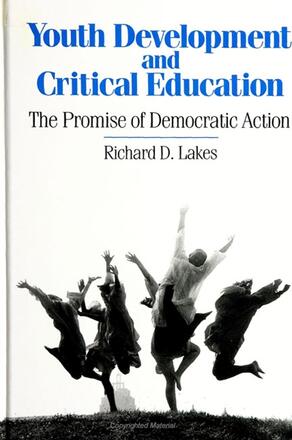
Youth Development and Critical Education
The Promise of Democratic Action
Alternative formats available from:
Profiles programs for economically disadvantaged, inner-city youth engaged in neighborhood revitalization and community organization programs.
Description
Public policy debates about urban crime and the fate of America's crumbling inner cities suggest a need to consider solutions that create conditions for sustainable community development—where youths join with caring adults in intergenerational coalitions at the grassroots. Using a field-based approach, the author reviews over two dozen youth development projects in non-school and after-school settings. The analyses of these programs examines how young people might achieve a level of economic and political self-determination and community control, as well as personal fulfillment coupled with healthy adolescent growth. Once empowered with critical insights, young people can exhibit positive, real-life displays of their visions, dreams, and ambitions.
Richard D. Lakes is Assistant Professor in the Department of Educational Policy Studies at Georgia State University. He is editor of Critical Education for Work.
Reviews
"Filled with first-hand examples of youth action in urban areas, this resource serves as an antidote to the 'there is nothing to be done' attitude so rampant these days." — George Wood, author of Schools That Work: America's Most Innovative Public Education Programs
"Richard D. Lakes brings us to a world beyond possibility—a world where theory is realized to its fullest potential through the lives of individuals and groups dedicated to improving their worlds. In the Freirian sense these individuals truly make the road by walking. I believe this type of project is the next direction for critical pedagogy—to move beyond the languages of critique and possibility into a fuller realization and concretization of theory at local sites." — Bryan Deever, Georgia Southern University